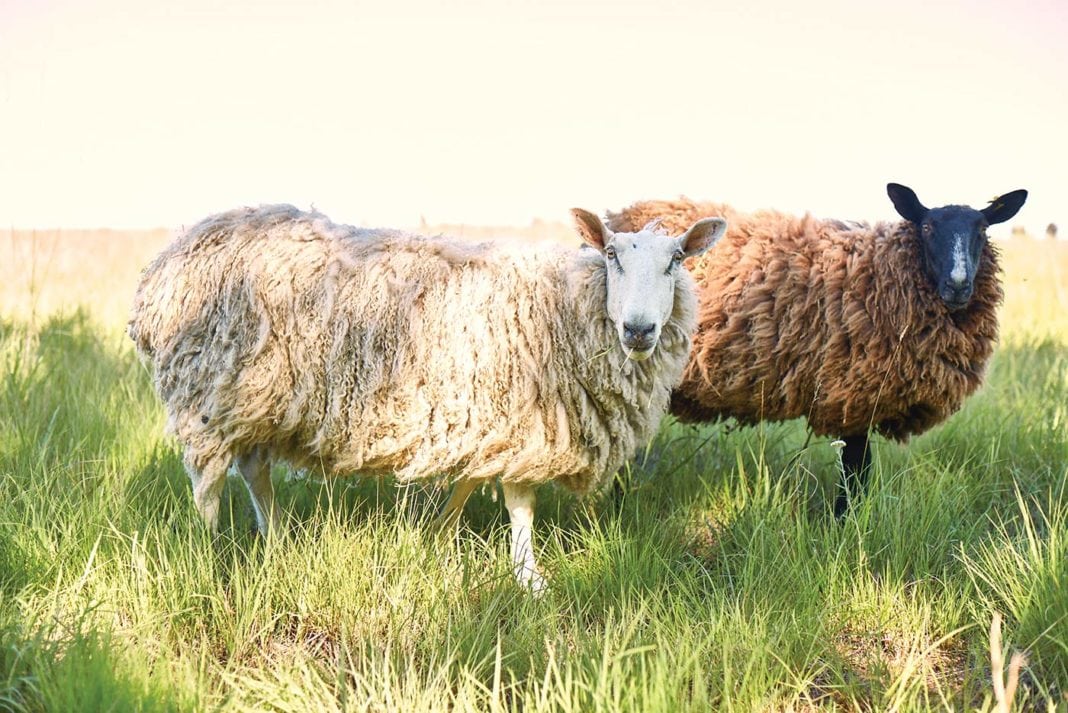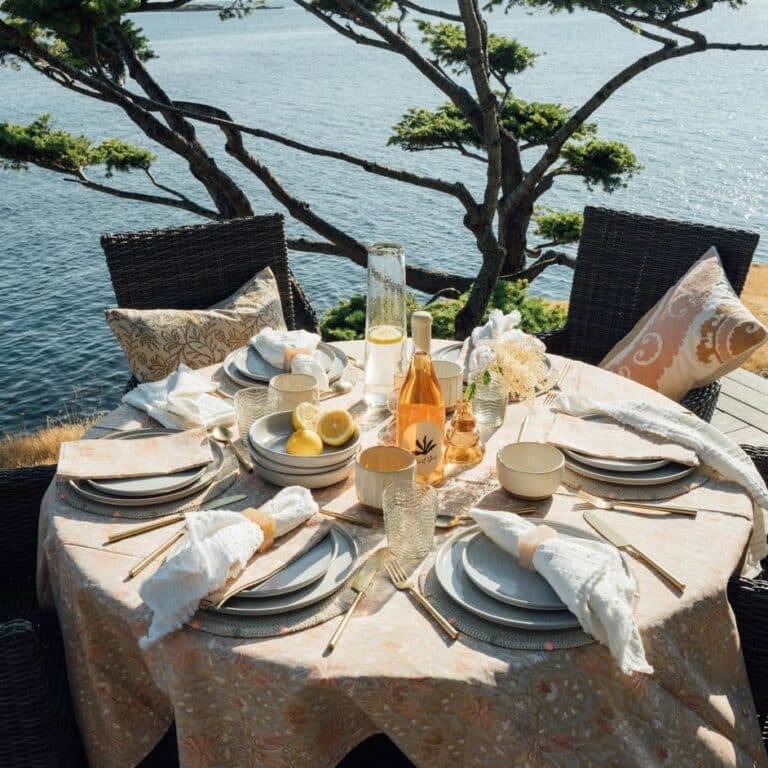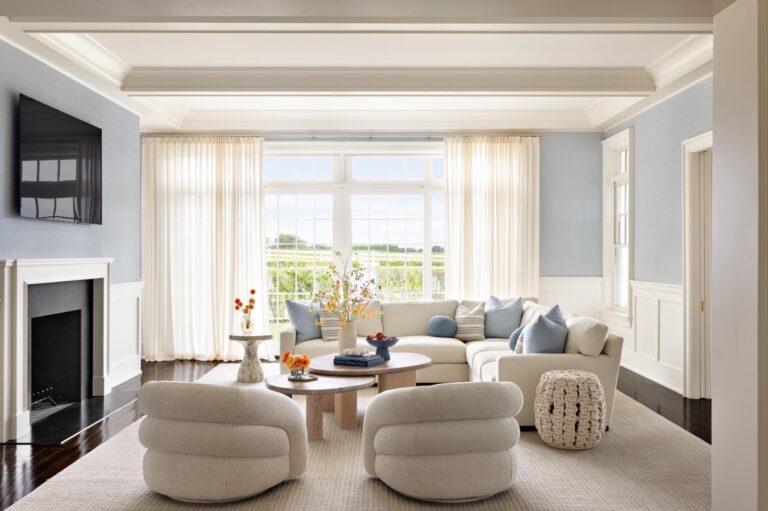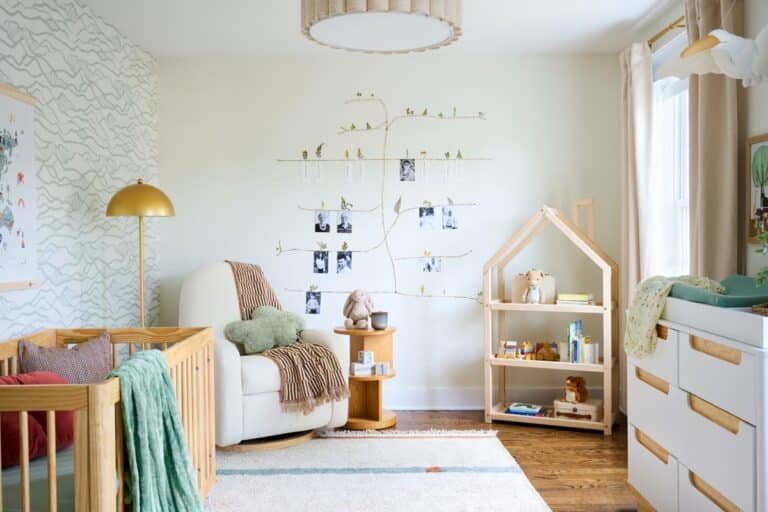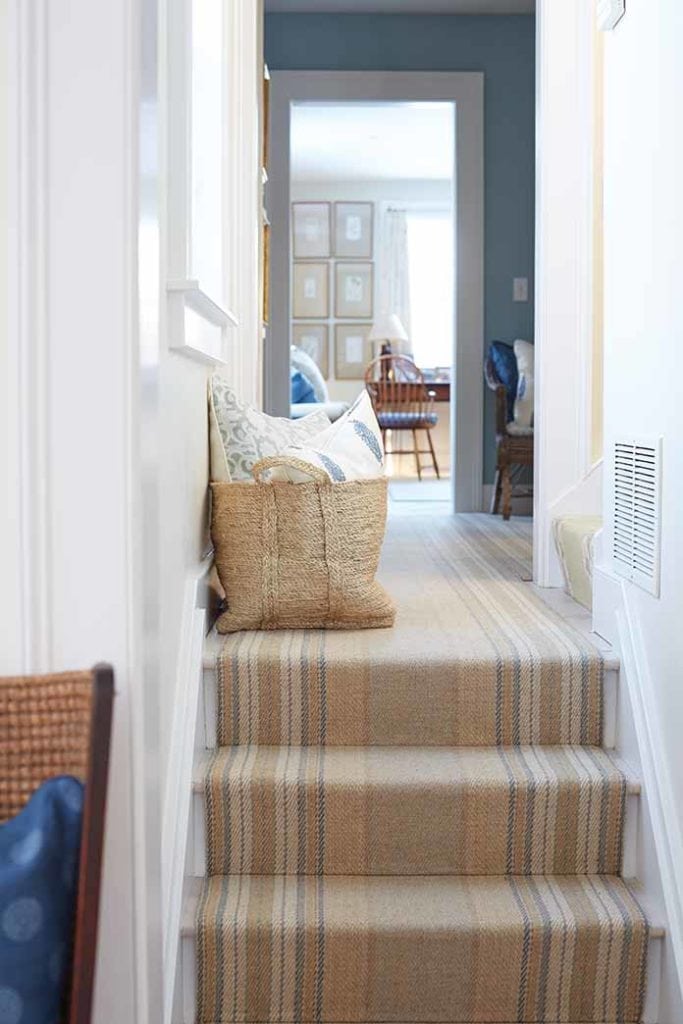
“As a child growing up, my family had a farm in Pennsylvania. My exposure to farming has been my entire life, so the desire and decision to return to it was a natural one,” Elizabeth Eakins says. She and her husband, Jerry Wigglesworth, bought 240-acres in his native Kansas 15 years ago, where they raise a flock of Border Leicester sheep that Eakins uses for the raw material in her rugs. “Farming reminds me of what I knew growing up. There are traditional aspects that I responded to, like solid Midwestern values and the discipline of people in agriculture.”
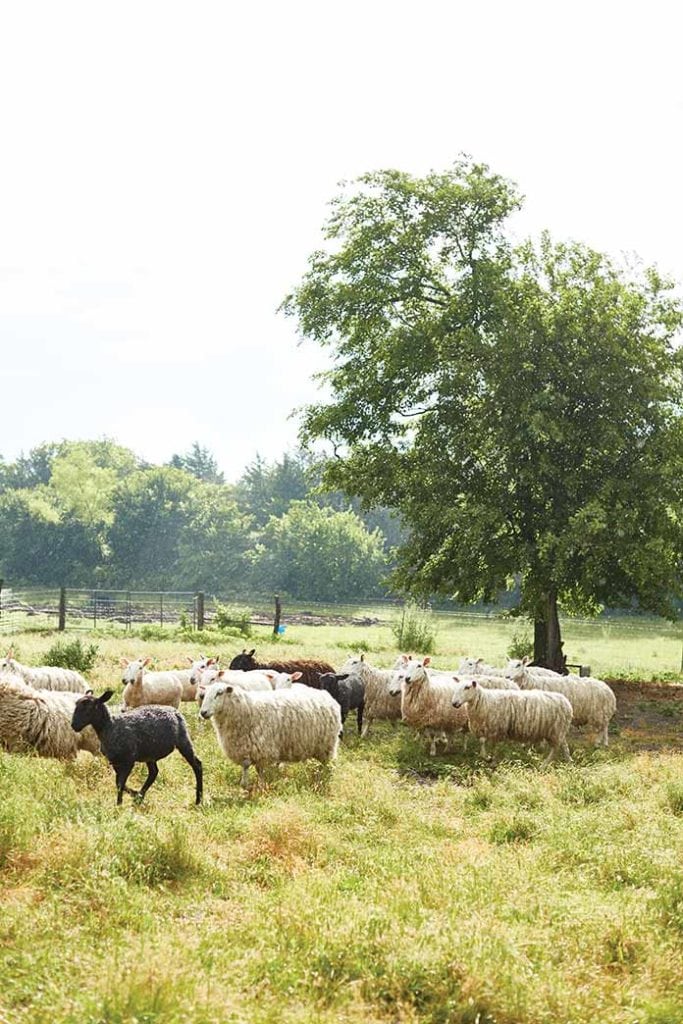
Eakins believes in doing things the real, historical way, from the ground up, and her mission has always been to make textiles of quality by hand, out of natural fibers, in the United States as much as possible. “Antiques and well-made items are worth keeping and have an incredibly long life span. A lot of other junk ends up in dumpsters and landfills, and we live in a time where we really need to think about our global resources,” Eakins explains. “Raising cotton is very expensive; it’s soil-intensive and hard on the land. Same with linen. For wool, you just need sheep. They help with a lot of things: they graze, they clean out pastures and they keep the grasslands safe. If grass gets too tall it becomes dangerous; they prevent prairie fires in drought situations.”
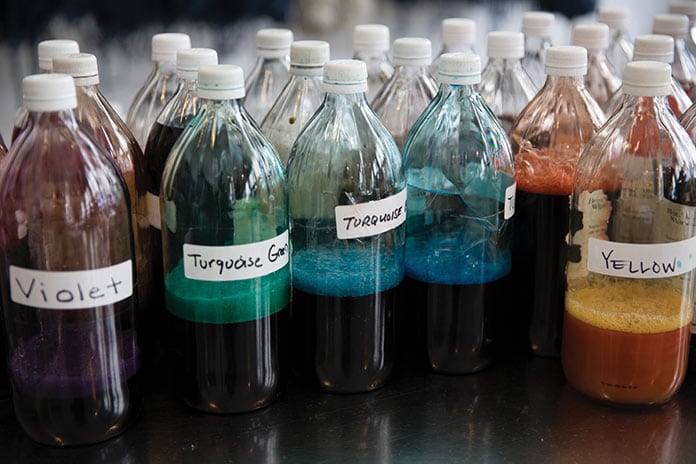
Currently the farm is home to approximately 120 sheep, with a possible 24 lambs expected this spring. “When you are the caretakers of livestock, it is a huge responsibility. We don’t have a team; we do our own work,” says Eakins. “Dealing with nature is high-risk. It is powerful and there is no negotiation; we’re given a circumstance every single day. Growing crops for animals and preserving grasslands are subject to what’s going on climate wise.”
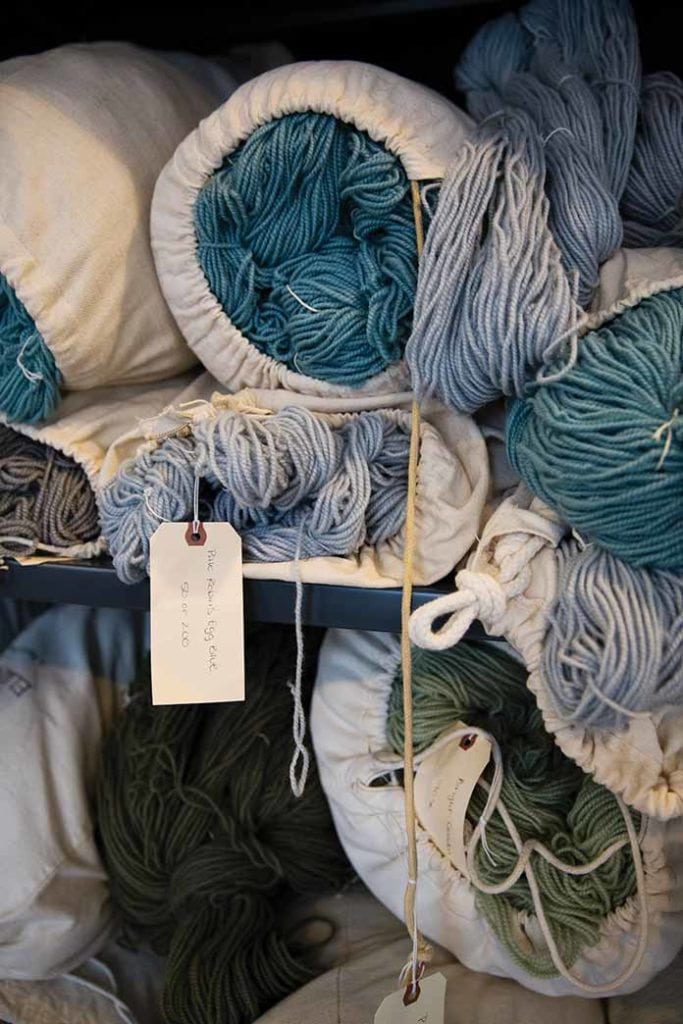
Eakins’ sheep are hand-sheared once or twice a year, and the wool then undergoes a multi-step process including rolling, washing, carding and spinning, before it is woven. Even with a flock of 120, Eakins doesn’t produce enough wool for all the rugs she makes, but her Private Reserve product line is exclusively from her herd. She explains, “I have a certain amount of fleece, and I know how many rugs I can produce from it in a given year. If I need more, I reach out to other breeders in our co-op and buy at a fair market price. But I never blend my Private Reserve with anything else.”
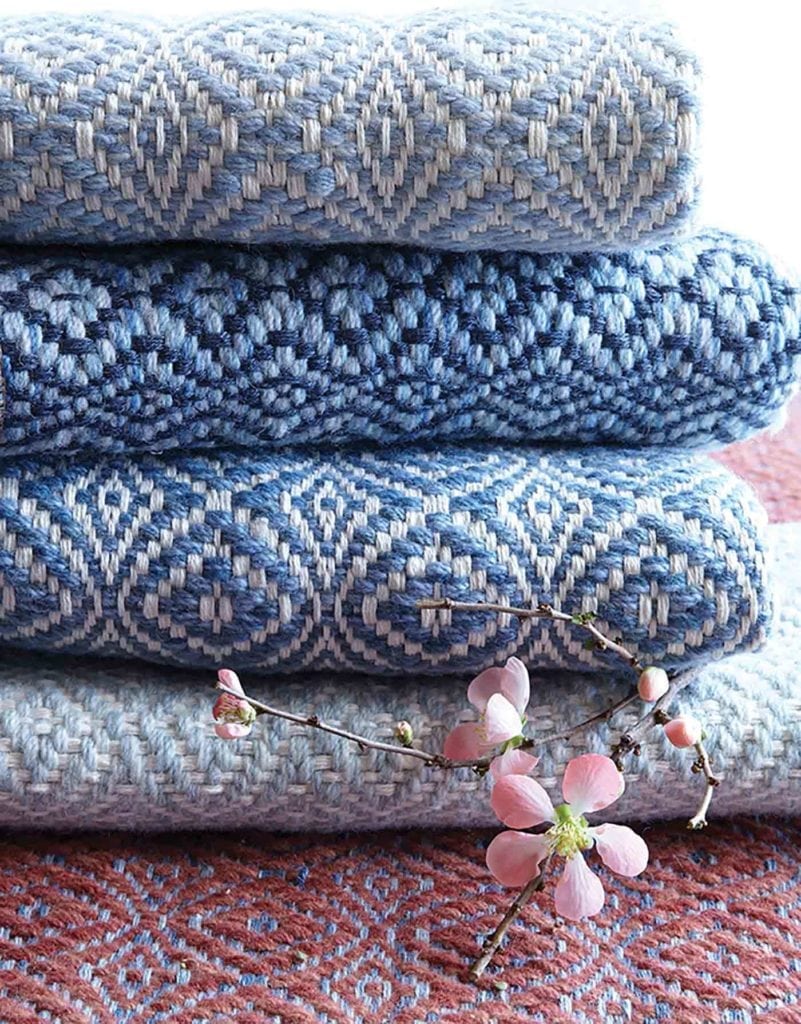
Eakins has her own showrooms in Manhattan and Los Angeles, but her largest facility is the 23,000 square foot Elizabeth Eakins Studio in Norwalk, CT. The studio includes showroom, office and production spaces, and Private Reserve rugs are woven there on site. Her home life is split evenly between Connecticut and the farm, and she even built a design and weaving studio in Kansas so she can work there while not tending the sheep. It’s safe to say Eakins has the best of both worlds: a long and respected career at the forefront of textile design, as well as the peace and beauty of bucolic life.
SPEED ROUND
One word that describes you: Steadfast
Your next trip will be: Asia—I love the opportunity to learn from other people.
People would be surprised to know: I am very shy in public.
Your style icon: Architect Gil Schafer
A home should be filled with: Light and comfort
Best design book: The Spirit of Indian Painting by B.N. Goswamy (for color inspiration and the minutest details)
Photos by (staircase, sheep and rug) Victoria Pearson; (yarn and dye) Bruce Plotkin

